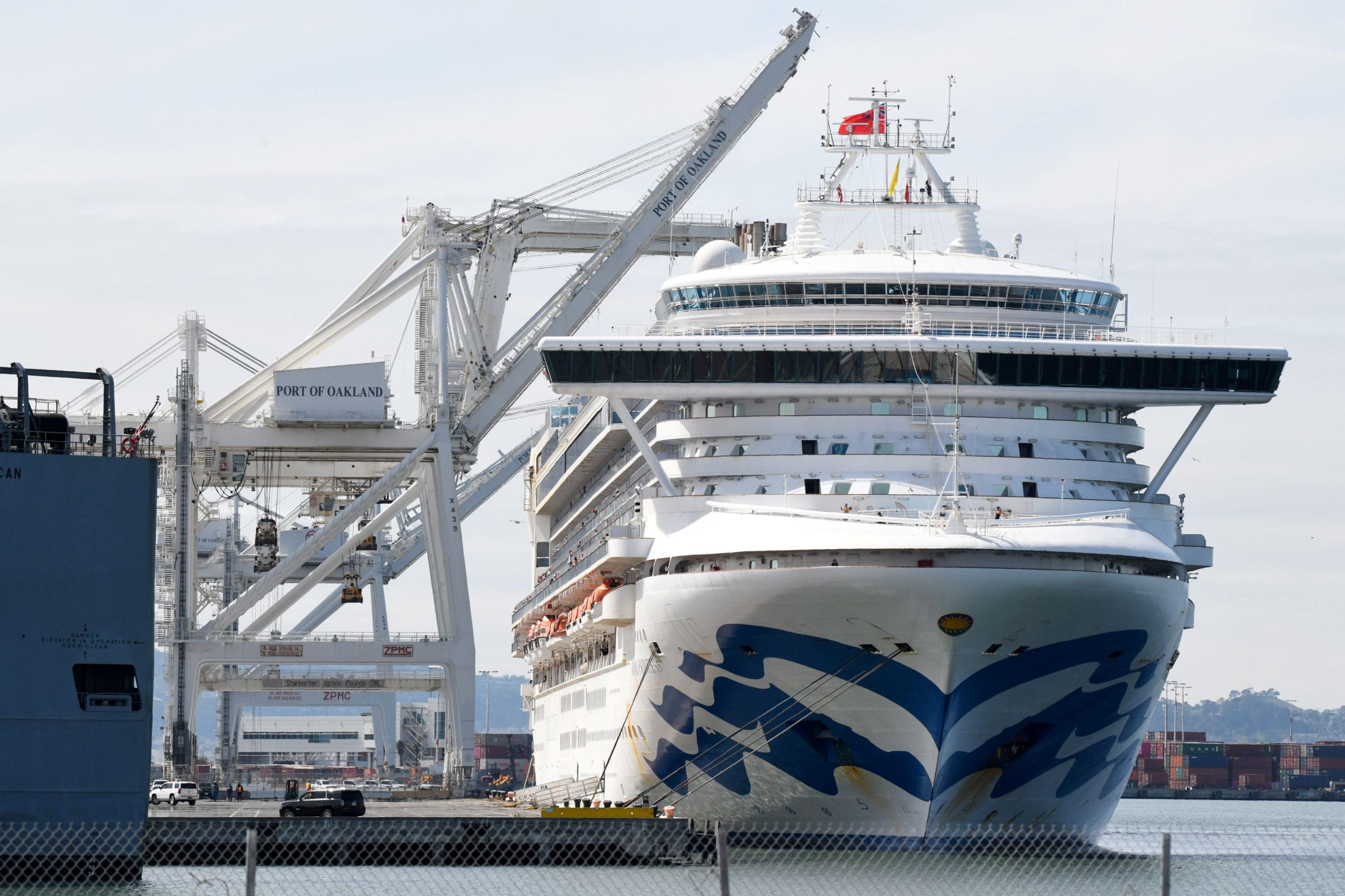Royal Caribbean Forecasts Quarterly Profit Below Estimates as Expenses Surge
Royal Caribbean forecast fourth-quarter profit below expectations on Tuesday, as the cruise operator faces higher costs, sending its shares down about 8% in early trading.

FILE PHOTO: The Grand Princess cruise ship carrying passengers who have tested positive for coronavirus is seen docked at the Port of Oakland in Oakland, California, U.S. March 9, 2020.REUTERS/Kate Munsch/File Photo
![]()
By Tom Hals July 15 (Reuters) – A federal judge dismissed lawsuits by Grand Princess cruise ship passengers who sued for emotional distress caused by their fear of exposure to COVID-19, saying that allowing their cases to proceed would “lead to a flood of trivial suits.”
Judge Gary Klausner in Los Angeles said in Tuesday’s ruling that allowing passengers to collect damages based on potential COVID-19 exposure without suffering symptoms raised concerns of unlimited liability for restaurants and other businesses.
Debi Chalik, a lawyer for passengers Ronald and Eva Weissberger, said she was disappointed with the ruling and might appeal.
Chalik said fears of COVID-19 lawsuits were overblown because few businesses welcome customers the way Princess did, knowing the virus was potentially present.
“If a gym or restaurant is inviting people to come when they know the virus is circulating there, I think you should be able to sue,” she said.
Carnival Corp, which operates the Grand Princess, did not immediately respond to a request for comment.
The cruise industry has been hard hit by the pandemic and Carnival said last week it was planning to resume operations.
Read: Class Action Suits Face Uphill Battle Against Cruise Lines
In March, officials prevented the Grand Princess from docking in California for days after a coronavirus outbreak before taken the 2,400 passengers into quarantine.
The Weissbergers alleged the cruise line allowed them to board the ship even though passengers who disembarked the same day from a prior cruise had symptoms of COVID-19.
The couple sought more than $1 million for putting their health at risk and causing trauma.
Businesses have asked Congress for protections against lawsuits for allegedly exposing customers to coronavirus, but Christopher Robinette, a professor at Widener University Commonwealth Law School, said this case was a long shot.
“It’s one of the ‘I was afraid of catching’ cases. Those are extremely hard to win,” he said. (Reporting by Tom Hals in Wilmington, Delaware; Editing by Richard Chang)
(c) Copyright Thomson Reuters 2020.

Sign up for gCaptain’s newsletter and never miss an update

Subscribe to gCaptain Daily and stay informed with the latest global maritime and offshore news
Essential news coupled with the finest maritime content sourced from across the globe.
Sign Up